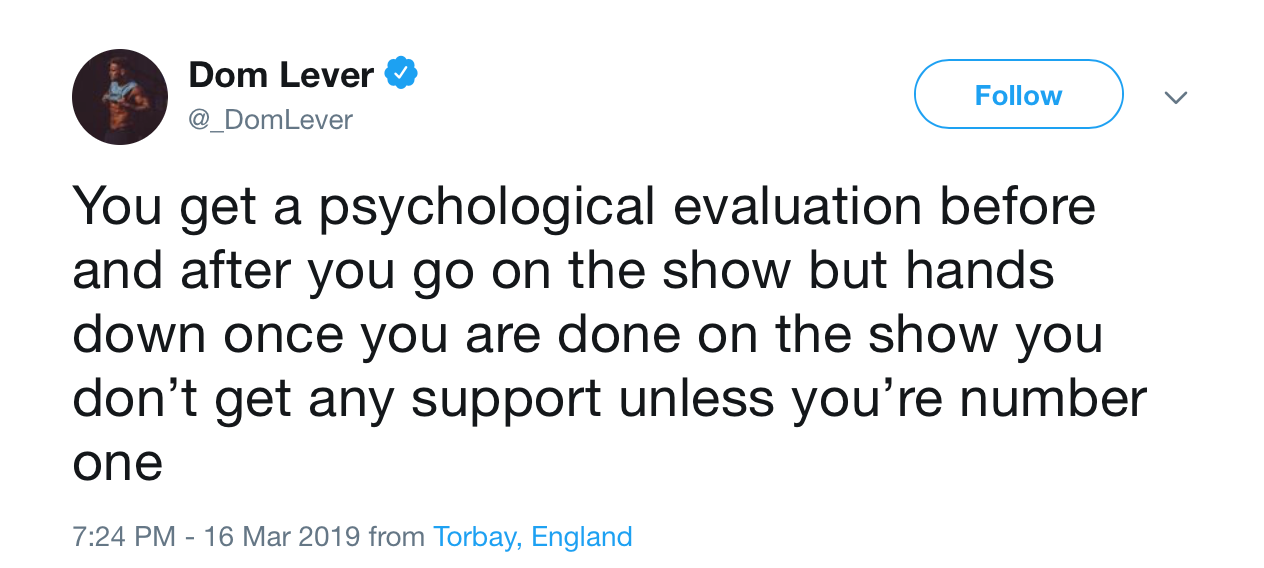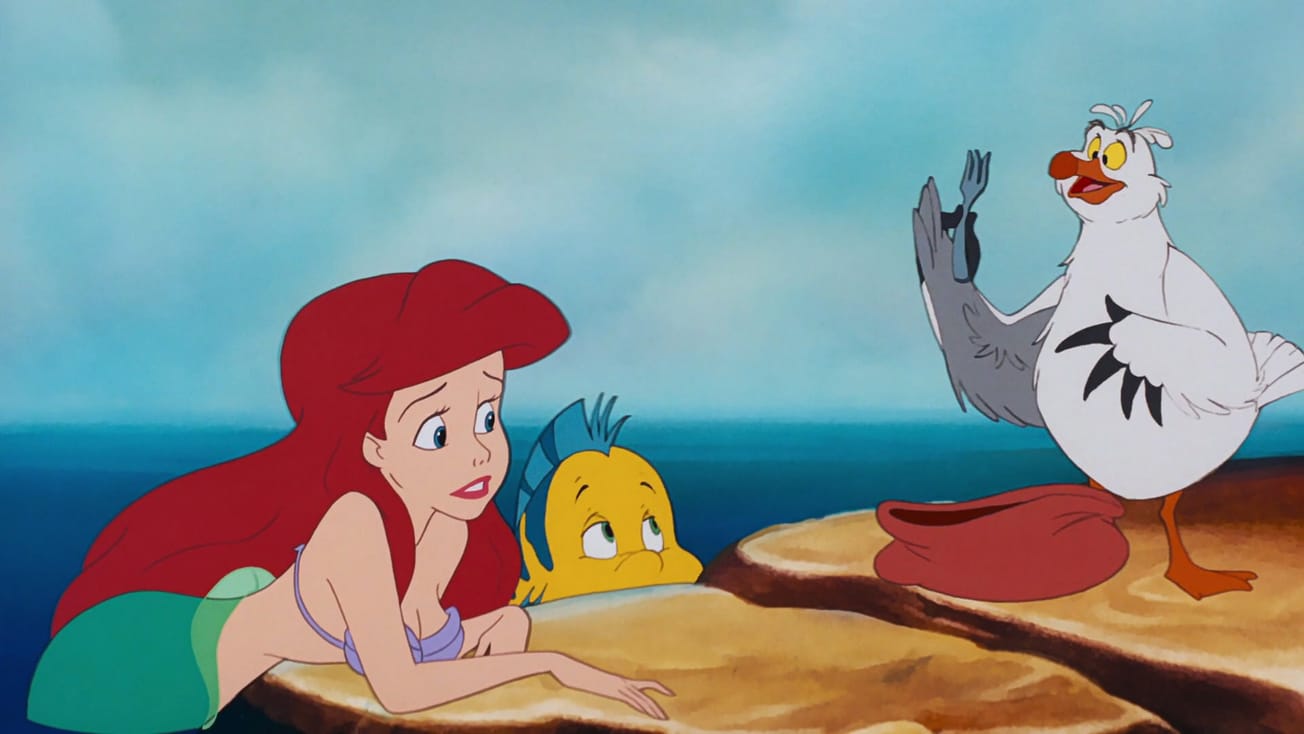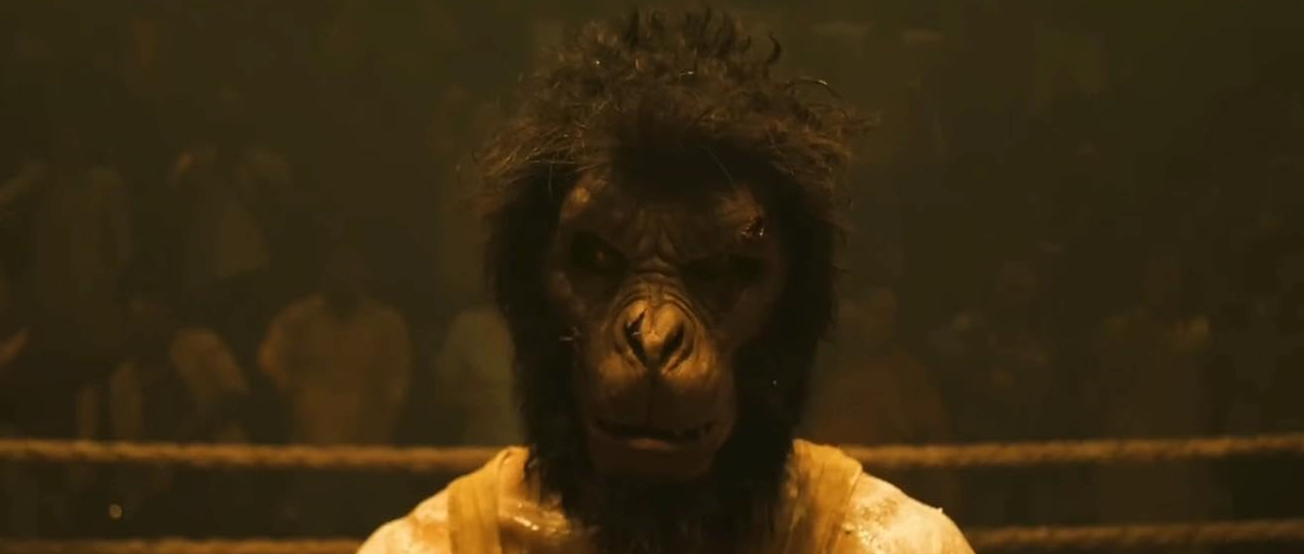By Patrick Sullivan, Film & TV Editor
CW: This article contains sensitive material in the discussion of Mike Thalassitis' death
Fans have mourned the tragic passings of the former Love Island contestant, aged 26, announced on March 16, and previously Sophie Gradon, who died last June aged 32.
For the past four summers, many students have keenly followed the ITV2 reality TV show, debating its influence on young people and the conditions it subjects its contestants to as they spend up to eight weeks in a villa under surveillance. All, however, will be saddened by recent news.
Yesterday, the body of Mike Thalassitis was found in woods outside his Essex home. The cause of death is still unconfirmed, but it is being treated as unsuspicious and fellow Love Island Season Three contestant, Montana Brown, said Thalassitis had been in a ‘dark place’ in recent months. It comes less than three months after the death of his best friend, Danny Cutts, on Christmas Eve, and two days after the reported death of his grandmother, aged 94, who he lived with and cared for.
There was an outpouring of sadness following the announcement with fans and co-stars posting tributes on social media.
Devastated to learn of the passing of @MikeThalassitis . He was kind and dear and I shall never forget his warm cuddles and wicked twinkle. What a premature and heartbreaking loss.
— Tom Read Wilson (@TomReadWilson) March 16, 2019
Another Love Island co-contestant, Olivia Attwood, posted on Instagram: ‘Literally don't know what to say. Another one gone too young. Thinking of mike's family and friends at the horrendous time. you will be missed terribly.’
Tom Read Wilson, a co-star from Celebs Go Dating, tweeted: ‘Devastated to learn of the passing of @MikeThalassitis . He was kind and dear and I shall never forget his warm cuddles and wicked twinkle. What a premature and heartbreaking loss.’
Mike Thalassitis was a charismatic, confident star on camera, a smooth heartthrob who was a talented, semi-professional footballer as well as regular appearing on reality TV shows. It is an alarmingly young loss for the world and one which many feel was preventable.
Two more Love Island Season Three contestants, Dominic Lever and Jessica Shears, now married, spoke out about the lack of support from the showrunners after the series concludes. Lever tweeted: ‘You get a psychological evaluation before and after you go on the show but hands down once you are done on the show you don’t get any support unless you’re number one’
Shears, meanwhile, called directly for shows to do more: ‘Shows offer you ‘support’ but realistically it’s only while you are in their care. Minute you get home & are no longer making them money it’s out of sight out of mind. There should be ongoing support & also finacial [sic] advice. Life after these shows isn’t all it’s cracked up to be.’
Kady McDermott, also on Season Three, reinforced these sentiments. ‘Hopefully going forward reality shows will help more with the aftermath of being on one, because I can say it definitely didn’t happen after my series when lots of us needed it. Peoples lives change over night and no one can mentally be prepared for it. The good and the bad.’
It raises the question of the responsibilities of a TV show which propels unprepared young people into unprecedented fame. Love Island averaged five million viewers per episode, and, upon leaving the show, contestants’ every relationship, night out and outfit is seemingly reported by tabloid newspapers and magazines.
The deaths of Sophie Gradon and Mike Thalassitis from love island really do show the destruction of the media... 💔
— Anna Ivy (@annaivy__) March 16, 2019
When Sophie Gradon, a fan favourite of Season Two in summer 2016, died on 20 June 2018, there was similar heartfelt response by the show’s loyal supporters and former contestants. An inquest into her death was due to start on Thursday at Northumberland Coroner’s Court, but has been delayed until Tuesday after Gradon’s parents received new information. Sophie’s boyfriend at the time of her death, Aaron Armstrong, also died only days after her funeral.
Malin Andersson, also of Season Two fame, tragically lost her daughter earlier this year has also spoken out in the wake of Thalassitis’s death about her experiences and lack of support. ‘WAKE UP @LoveIsland !!!! [...] I got flowers from the producers when my daughter died. No fucking phone call. No support, or help. [...] Enough is enough [...] Nothing when my mum died. Nothing when Sophie died. Change needs to happen.’ Her series of tweets were followed by calls for anyone who feels ‘alone, or sad, or stuck [to] reach out to somebody’, signposting followers to the charities Mind and the Mental Health Foundation.
If I didn’t have a strong head on me that my mum passed down to me, I wouldn’t have been able to cope with this all. But not everyone is like this. PLEASE IF YOU FEEL ALONE, OR SAD, OR STUCK REACH OUT TO SOMEBODY!
— Malin Andersson (@MissMalinSara) March 16, 2019
Love Island is a show adored by many university students, watched by well over one million 16-34 year olds in the UK, and there is growing demand for media coverage year on year. Season Five is due to be aired in May, less than two months from now, and the cause of death of Gradon and Thalassitis may still be unconfirmed. The responses of fans online have followed Andersson’s call for people to reach out to their friends and loved ones, even if there are no visible signs of struggling, and to also address the attitudes of the media in how they cover TV personalities.
Featured Image: Twitter / @dominiclever
Most people who are thinking of taking their own life have shown warning signs beforehand.
These can include becoming depressed, showing sudden changes in behaviour, talking about wanting to die and feelings of hopelessness. These feelings do improve and can be treated.
If you are concerned about someone, or need help yourself, please contact the Samaritans on 116 123.
Other student support services include:
Young Minds https://youngminds.org.uk/ 0808 802 5544
Nightline https://www.nightline.ac.uk/want-to-talk/
Papyrus https://www.papyrus-uk.org/ 0800 068 41 41
Student Minds http://www.studentminds.org.uk/findsupport.html








